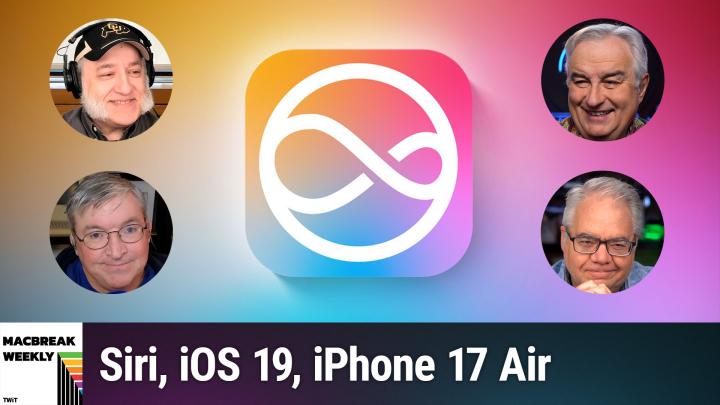Apple Intelligence Marketing Misstep
AI-created, human-reviewed.
On the latest episode of MacBreak Weekly, hosts Leo Laporte, Andy Ihnatko, Alex Lindsay, and Jason Snell talked about Apple's recent admission that many of its promised Apple Intelligence features won't arrive until 2026, following commentary from Apple blogger, John Gruber.
The conversation centered around Apple's June 2023 announcement of ambitious AI features branded as "Apple Intelligence," which the company heavily promoted but has since significantly delayed. This sparked a particularly pointed critique from longtime Apple commentator John Gruber, who expressed feeling "bamboozled" by Apple's promises.
"This is what comes of thinking Apple is your lover. It isn't your lover, it is a company. It is dedicated to profit," Laporte quipped, suggesting that Gruber's disappointment stems from holding Apple to a different standard than other tech companies.
Jason Snell offered a more measured but equally critical perspective: "I think it was very clear that Apple felt incredible pressure to show that they were in the AI game... and I think it was very clear that they were pushing it hard and potentially lowering their standards." He highlighted the disconnect between Apple's marketing approach and the reality of their engineering capabilities.
The panel discussed the unusual nature of Apple's misstep, with Andy Ihnatko noting, "I don't think they necessarily lied. They did marketing, and I know that's often a great... there's a big gulf, hard to tell the difference between those two." The hosts pointed out that Apple had broken from its traditional practice of only announcing features when they were ready or nearly ready to ship.
Alex Lindsay suggested the pressure came from multiple sources: "I think that it is because of the market... You have a bunch of analysts that are asking you every meeting, 'What are you doing about AI?'" He also noted how stock prices affect employee morale at companies like Apple where many employees have stock options.
The conversation turned to structural issues at Apple that might have contributed to this situation. "I do think that if you look at this, there seems to be a real 'I got it, you take it' kind of thing going on between Craig Federighi, who's in charge of software, and John Giandrea, who's in charge of AI," Snell observed, pointing to potential organizational problems.
Perhaps most concerning for Apple fans was the discussion about Siri, which the hosts agreed remains far behind competitors despite years of promised improvements. "I think one of the things that's really hard here is that Siri is the obvious one that if you could fix it, it would be a huge deal," Lindsay said, describing how he uses ChatGPT while driving instead of Siri because of its superior capabilities.
The panel concluded by considering whether Apple has learned a lesson about pre-announcing features. "That was always their tradition is don't pre-announce," Ihnatko remarked, suggesting this departure from that principle has cost them credibility.
Despite the criticism, the hosts acknowledged that Apple's marketing strategy might have achieved some of its goals. Laporte noted that some consumers were now interested in upgrading their iPhones specifically for AI features they had seen advertised.
For Apple, this controversy represents what Snell called a "new low in terms of Apple not announcing things that don't exist." The question now is whether this experience will drive meaningful change at Apple, particularly in how the company approaches AI development and marketing promises going forward.
As Apple approaches its next WWDC in June, all eyes will be on how the company addresses these delays and whether it can rebuild trust with developers, customers, and the tech community at large. The hosts of MacBreak Weekly will surely be watching closely.
